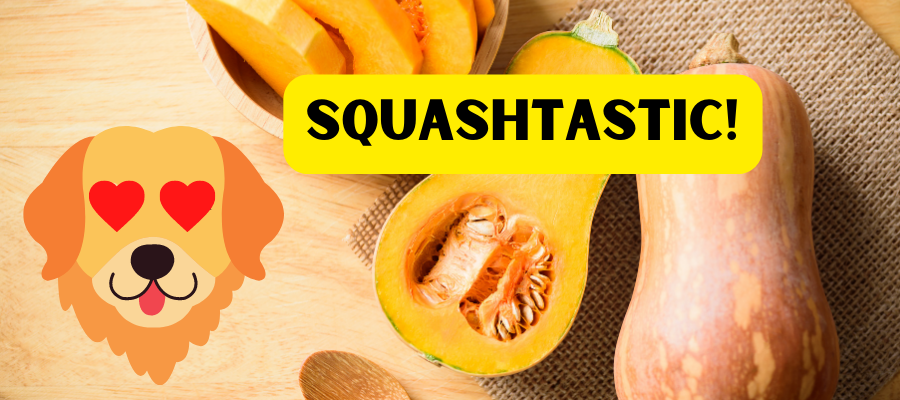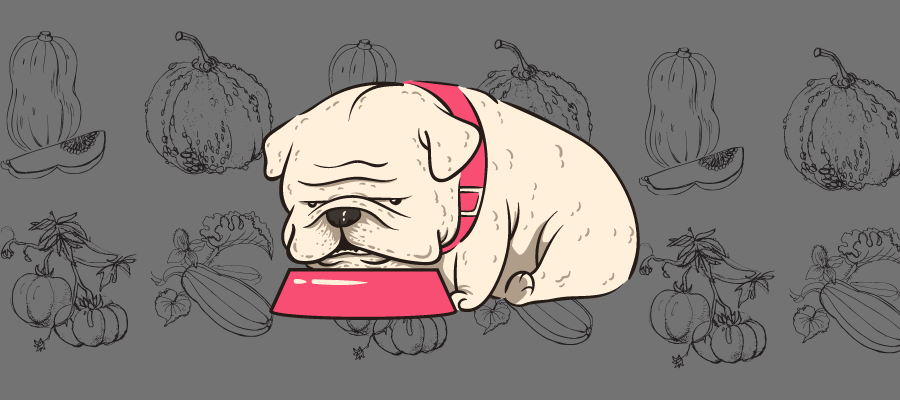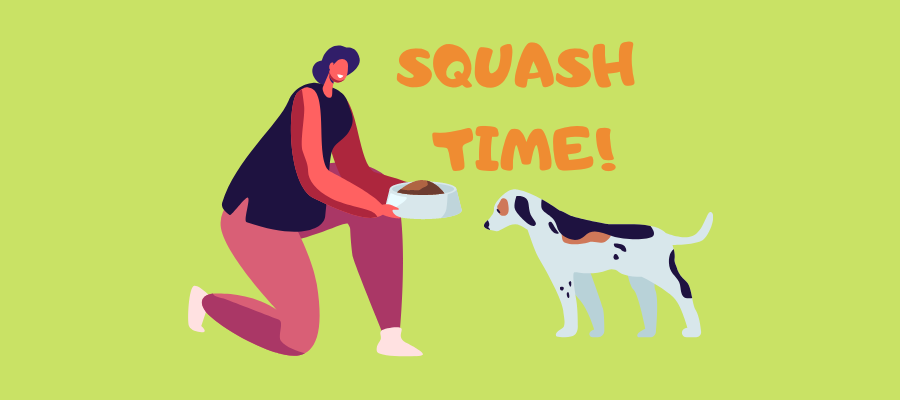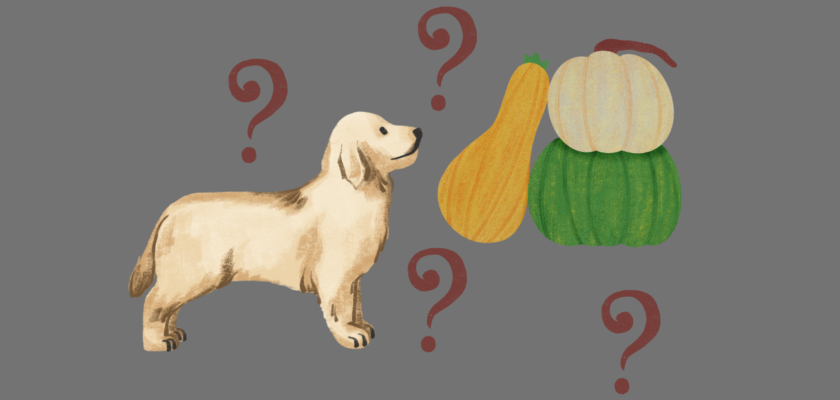Key Takeaways
- Dogs can eat squash. ✔️
- It can help your dog maintain a healthy weight. ✔️
- All squash varieties made for humans to eat are safe for dogs, too.✔️
- You should start with giving your dog tiny pieces, and then increase the portion. ✔️
Is Squash Safe for Dogs?

Can dogs eat squash? Yes, they can!In fact, squash is a nutritious food that can provide your dog with fiber, vitamin C, and vitamin A. You should only feed your dog squash that has been grown for humans to eat. Wild vegetables can contain cucurbitacin – a toxin identified by its bitter taste.
How Much Squash Can You Feed Your Dog?
You can feed your dog squash every day, but only in little portions (1 spoonful, or three 5 little pieces). Consuming too much can cause digestive issues, particularly if it’s not cooked.
Editor’s Note 🐕
Dog food should always serve as dogs’ primary source of nourishment. Treats like vegetables should not account for more than 10% of your pet’s total daily food intake.
Why Is Squash Good for Dogs?
All varieties of squash are packed with vitamins and minerals, for example vitamin A and potassium. They’re also full of antioxidants that help prevent inflammation.
Besides its nutritious value, squash can help with weight control. How? It has plenty of fiber to keep bellies full. If your dog is prone to overeating, a low-calorie snack like summer squash will keep cravings in check. It can also help your dog with diarrhea or constipation.
Can Dogs Eat Squash That’s Raw?

Raw and cooked squash are both good options for your pup. Raw squash can be added to your dog’s food in little amounts as a crunchy snack, or you can cook it and add it to their regular meal. The best way to serve cooked squash to your dog is mashed with a little water or chicken broth. You can also chop it up and mix it into their kibble.
Is Seasoned Squash Safe for Dogs to Eat?
Squash is bland, so you may be tempted to add a little spice. However, dogs cannot eat onions or garlic – these ingredients are toxic for them. Salt and sugar are also off limits. A bit of cinnamon, ginger or basil is fine if your pet likes them.
Types of Squash for Dogs
Which squash exactly should you give your dog? Practically, all will do, as long as they’re also safe for humans.
Butternut Squash
Butternut squash is a good source of fiber, potassium, vitamin C and zinc. It’s low in fat and has fewer calories than other types of squash. You can easily make butternut squash purée at home – simply bake the squash for about 30 minutes, then mash it up with a little chicken broth.
Zucchini
Zucchini is a great source of vitamin C, potassium and magnesium. Like other types of squash, it’s low in calories and high in fiber, making it a perfect weight-loss snack for dogs.
You can feed your dog slices of the raw vegetable, or boil them for a few minutes to help them soften up. This is great if you’re looking for a super easy and quick way to add more vegetables into your pup’s diet.
You can learn more about zucchini for dogs here!
Pumpkin
Pumpkins are loaded with fiber, beta-carotene and vitamin C – all great nutrients for your pup. Plus, pumpkin is a natural laxative, which can help with constipation. Pumpkin is a popular ingredient in many dog foods and treats, but you can easily serve it to your pup at home. You can even give them canned pumpkin if that’s easier for you.
How to Introduce Squash Into Your Dog’s Diet

In what way can dogs eat squash for the first time?As with any new food, you should slowly introduce squash to your dog’s diet. Start by mixing a small amount of cooked or raw squash into their regular meal. If they tolerate it well, add a little more the next day.
If your pup isn’t used to eating vegetables, you may see some digestive issues. This is normal and should go away within a few days as their body adjusts to digesting more fiber.
Similar Posts:
- What Vegetables Can Dogs Eat? Our List of Best Vegetables Dogs Can Eat
- Can Dogs Eat Zucchini? Is It a Vegetable Dogs Like?
- Can Dogs Eat Pumpkin? The Benefits of Pumpkin For Dogs & Safety Tips
- Can Dogs Eat Green Beans? Is a Green Bean Diet Good for Dogs?
- What Human Food Can Dogs Eat? 9 People Foods You Can Give Your Dog
- Can Dogs Eat Pumpkin Seeds?
- Can Dogs Eat Honeydew, Cantaloupe or Watermelon? Feeding Melons to Dogs
- Can Dogs Eat Eggplant?

